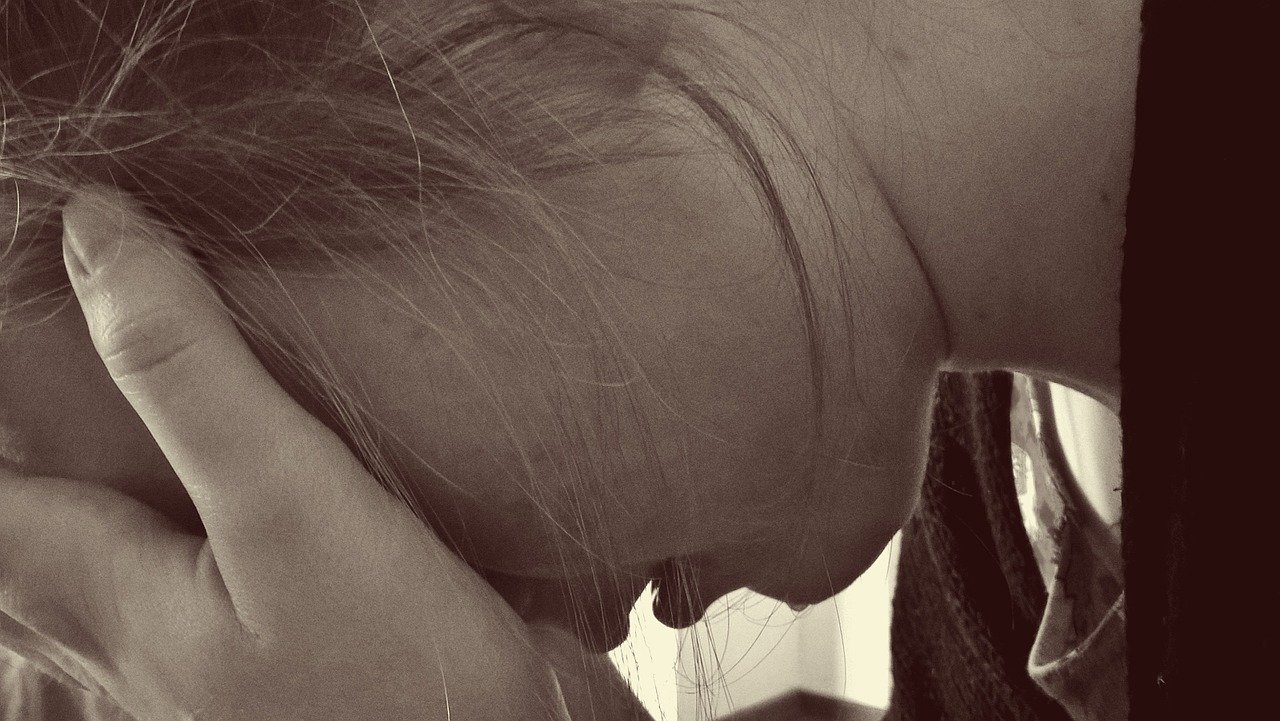Mental Health
What Should Parents Know About Teen Suicide?

(Photo : What Should Parents Know About Teen Suicide?)
Teen mental health is something that may not be talked about enough in households and schools around the country. We often view teen mental health as something related to angst, and if a teen is experiencing symptoms such as anxiety or depression, it may be viewed more as a normal part of being a teen.
Sometimes that can be true, but not always. There are a lot of instances where teen mental health can represent a more serious problem. Teens also face levels of stress now that perhaps previous generations didn't.
For example, the growing prevalence of cyberbullying has heavily impacted many teens, and in some cases, the consequences of bullying are tragic and may include teen suicide.
Parents should be educated and aware of the potential mental health issues affecting teens, as well as red flags of teen suicide. When parents are informed on these topics, they can proactively step in if they spot an issue, rather than waiting until it could be too late.
Mental Health Concerns Among Adolescents and Teens
According to the U.S. Department of Health & Human Services, one in five teens is believed to have a serious mental health disorder at some point.
Many mental health problems begin at an early age-typically by 14.
While it's normal for adolescents and teens to experience a wide range of emotions, a mental health disorder is characterized by persistent symptoms affecting how they think, feel and act. For teens with mental health disorders, they can affect their relationships, eating, and functionality.
Depression is the most common mental health disorder among teens and young people, and when it's untreated it can lead to life-threatening effects. For example, in 2013 and 2014, children aged 10 to 14 were more likely to die by suicide than an accident in a motor vehicle.
Teen Suicide in the U.S.
According to the United Health Foundation, the rate of teen suicide in the U.S. is 10.5 per 100,000 adolescents aged 15 to 19. There were more than 6,200 suicide deaths among adolescents and young adults in 2017, between the ages of 15 and 24. Suicide was the second-leading cause of death among young people in this age bracket.
According to the 2017 Youth Behavioral Risk Factor Surveillance System survey, in the past year before the survey was taken, more than 17% of high school students said they'd seriously considered attempting suicide. 7.4% said they'd attempted suicide.
There are certain risk factors that may make a teen more likely to contemplate or attempt suicide. These risk factors include:
-
Non-Hispanic black high school students were more likely to attempt suicide than white, non-Hispanic high schoolers
-
Teens who identify as gay, lesbian or bisexual are more likely to attempt suicide than teens who identify as heterosexual
-
Adolescents who have experienced psychiatric disorders such as substance use disorders or major depressive disorders
-
Having a family history of depression or suicide can be a risk factor
-
Experiencing physical or sexual abuse
-
Social isolation
-
Bullying isn't necessarily a direct cause of suicide, but it can be a risk factor for suicide
Mental Health Red Flags
Every teen is different, and the symptoms of mental health disorders may vary, but the following are some of the general signs that something could be more than just typical teen emotions.
-
Frequently being angry or worried
-
Problems with eating or sleeping
-
Loss of interest in activities
-
Isolation and reduced social interactions
-
Grief for an extended period of time
-
Use of drugs, alcohol or other substances
-
Symptoms of an eating disorder
-
Self-harm
-
Property destruction
-
Violence towards others
-
Low energy
As far as warning signs of suicide, they can look similar to the symptoms above, but others can include:
-
Drastic changes in personality
-
Rebellious or severely violent behavior
-
Sexual promiscuity
-
Restlessness or panicked behavior
-
Talking about suicide, even when appearing to make it a joke
-
Writing about suicide
-
Worsening school performance
-
Giving away possessions
-
Being obsessed or preoccupied with death
-
Visiting or calling people unusually in a way that might seem like they're saying goodbye
-
Making statements about hopelessness or worthlessness
-
Sometimes a suicide red flag can actually be seeming happier or more at peace
-
Having accidents resulting in injuries
What Should You Do?
As a parent, if you see any warning signs of a mental health disorder or suicide red flags, you should listen and offer to help your child in whatever way they're comfortable with. Don't ignore it, think it's a phase or hope it will pass.
Let your teen talk to you about what they're feeling and be compassionate and empathetic toward what they're saying.
You don't necessarily need to offer advice or try to solve their problems.
As a parent, you should always take any talk of suicide very seriously. Sometimes parents try to avoid talking about it because they think to talk about it will bring it to the forefront of their teen's mind or cause it.
In reality, if a teen is thinking this way they may feel very alone, and working with them on a strategy to improve things can be helpful.
You should remove all deadly weapons from your home, and in particular, guns if you believe your teen is suicidal. Remove prescription medications as well, or put them somewhere with a lock.
No parent is able to tackle suicidal thoughts or mental health disorders on their own, no matter how hard they may try. Just like a physical health condition, mental health disorders need professional treatment.
If you think your teen is in immediate danger, you should contact emergency services or take them to an emergency room. If there is a crisis situation, don't minimize it and don't leave your teen alone.
Any talk of suicide or attempt is critical, and parents shouldn't treat it as attention-seeking behavior.
As parents, it's so important that we are in-tune with what's going on in our child's lives, and sometimes that can include facing some difficult possible situations related to mental health or suicide.
* This is a contributed article and this content does not necessarily represent the views of counselheal.com









Join the Conversation